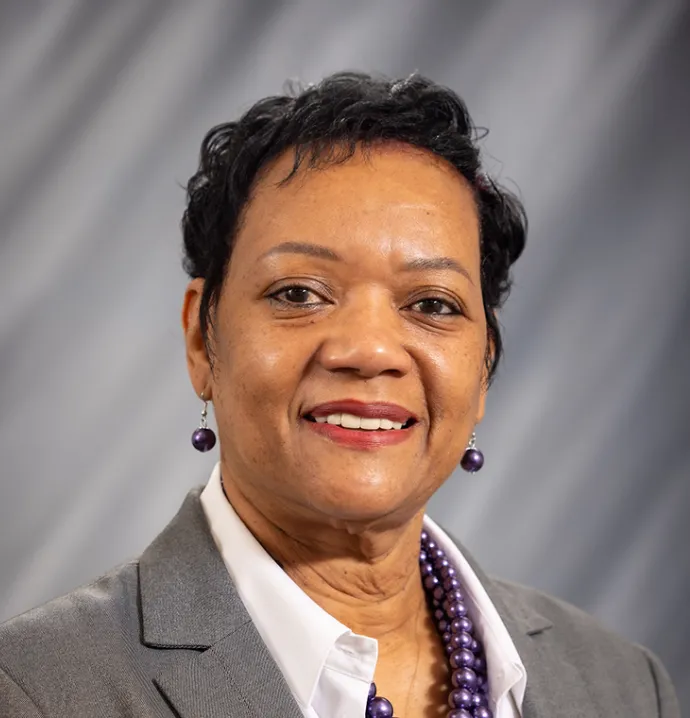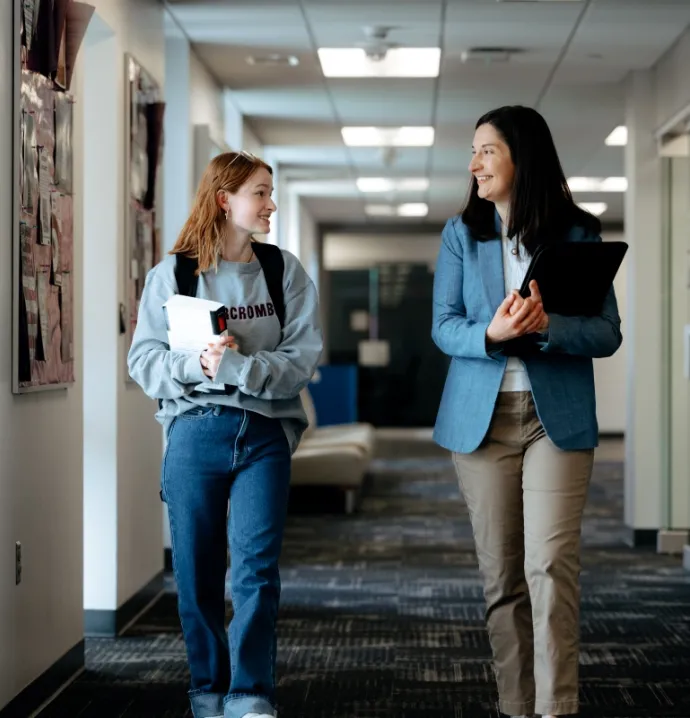‘Indigenous students belong here’ UNI crafts close relationship with Native tribes
‘Indigenous students belong here’ UNI crafts close relationship with Native tribes
University of Northern Iowa graduate student Leah Slick-Driscroll, a member of the Meskwaki and Winnebago nations, has spent more than a decade teaching Indigenous history at the Meskwaki Settlement School.
Now she’s part of a UNI group working with an array of Meskwaki, Ho-Chunk Nation and university leaders to craft a deeper partnership between the three entities, including a planned mission stewardship statement acknowledging UNI’s presence on Indigenous land.
On Tuesday, a half-day of campus listening sessions to help develop that statement was capped by a presentation and dance performance by Larry Yazzie, a renowned Meskwaki fancy dancer, in the Strayer-Wood Theatre. Yazzie called the day of listening a “beautiful event.”
“Indigenous people belong here,” he said. “Indigenous students belong here. I hope that the UNI faculty, the board can really embrace Indigenous people.”
Slick-Driscoll and others involved in the project, which originated in the President’s Office in partnership with UNI alum Angela Waseskuk, say the goal is to create a deep and lasting relationship that goes far beyond the statement planned to be unveiled on Indigenous Peoples’ Day in October.
“UNI has done a really good job of opening up their ears and listening to everything we have to say and trying to come up with proactive solutions,” said Trisha Etringer (‘19), a Ho-Chunk tribe member involved in the project who works full-time on Indigenous causes. “When (the statement is unveiled) I hope that some of the things we talked about come to life and we continue to have conversations and find solutions to issues.”
Etringer is the director of operations for the Sioux City-based Great Plains Action Society, a collective of Indigenous organizers that works on numerous issues including global warming, food sovereignty and land protection.
Azra Papakee, a junior social work major from Tama, was one of several Indigenous students to attend the event.
“There are more Indigenous students at UNI this year, as well as faculty wanting to help and be allies to and for our group,” Papakee said. “I am very grateful that UNI is starting to recognize how lucky we are to be so close to First Nations people, especially by aiming more towards youth and children who may not have even thought about college.”
Provost Jose Herrera, one of numerous UNI leaders who attended Tuesday’s events, echoed the theme of building a lasting partnership in his public remarks.
“Thank you very much for helping us understand and learn,” he said. “I hope that you're patient with us. But it's my intent as provost to make sure that the work that happens here will continue on for seven generations.”
Not only are UNI students and faculty assisting with educational programs at the settlement school, but plans are underway to launch a Native art history course at the university next spring. The group also wants to do more to support Indigenous students on campus.
“I know that UNI wants to build up its American Indian student base,” said Slick-Driscoll, who is earning a second master’s degree in educational leadership at UNI. “And once they're here, to help support those students academically.”
Tuesday’s event also featured the opening reception of the UNI Art Gallery exhibition "The Earth Is a House of Stories: Works from the UNI Permanent Art Collection by Native Artists," which was co-curated by Waseskuk and Gallery Director Darrell Taylor. The exhibit runs through December 15.




